Following the Supreme Court ruling on affirmative action, President Harry Elam wrote the Occidental community to share measures the college will be taking to fulfill its mission of diversity and inclusion. Among them, is a renewed commitment to the veteran community on campus.
“We will increase our efforts to build our veteran community by recruiting veterans locally and across the country,” Elam said in the July 26 email.
Occidental College is home to a Veterans Program that was launched in 2019 and aims to provide affordable housing, support services and educational accessibility for veterans. While the program is relatively new, the college has had a longstanding commitment to veteran attendance that goes back to the early 19th century.
After World War II, then Occidental president Arthur G. Coons addressed “Occidental Men in Service” August 28, 1945 by saying, “The war is over. We are grateful to you for your part in the great achievements of our country.”
At the end of his address, Coons said, “You will return to a college strengthened by the experiences of the war, quickened by new life and academic purposes, eager to make its largest possible contribution to your preparations for the days ahead.”
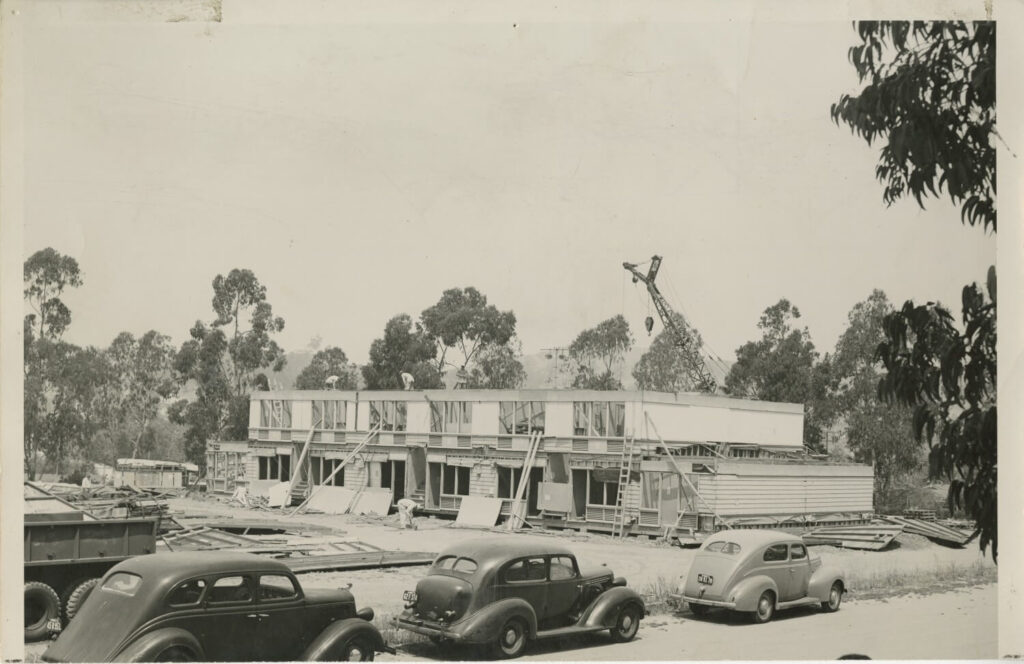
According to Occidental College Vice President of Enrollment Maricela Martinez, this legacy of veteran admissions at the college continues today, especially since California is home to the largest veteran population of any state in the United States.
“Veterans come from varied backgrounds with rich life experiences,” Martinez said. “Student veterans enhance our campus diversity and enrich the intellectual discourse.”
Veterans Program Coordinator Daryl Barker ’17 said his duties include overseeing the veterans’ house, recruiting students at community colleges and representing the veterans’ program to the Division of Student Affairs. A Navy veteran, Barker said he chose to come to Occidental after visiting the campus and because of programs like the Campaign Semester, a program where students earn credit to work on political campaigns. Barker did a Campaign Semester for the Patrick Murphy senate race.
Chris Serrano (junior) transferred from Pasadena City College to Azusa Pacific University and later to Occidental College. Serrano said he chose to come to Occidental because of the opportunity to make close connections with professors and students at a smaller private school. According to Serrano, Barker helped plant the seed for him to transfer to Occidental.
“I contacted [Barker] and asked about opportunities,” Serrano said. “His personality, his persona was so bright and he was such a nice guy. He turned me on to the idea of coming to Oxy and having a small campus vibe.”
Alex Romanov* (junior) served four years in the Marine Corps before attending Santa Monica College where he earned a year’s worth of transferable credits to Occidental. Romanov said he lives with his wife of two years, Alisha Ann Romanov, in a duplex on the Toland Way property — housing specifically designated for veteran students.
Barker said the Toland Way property was previously owned by a botanist who donated many of his plants to the Huntington Gardens, and numerous plants remain on the property.
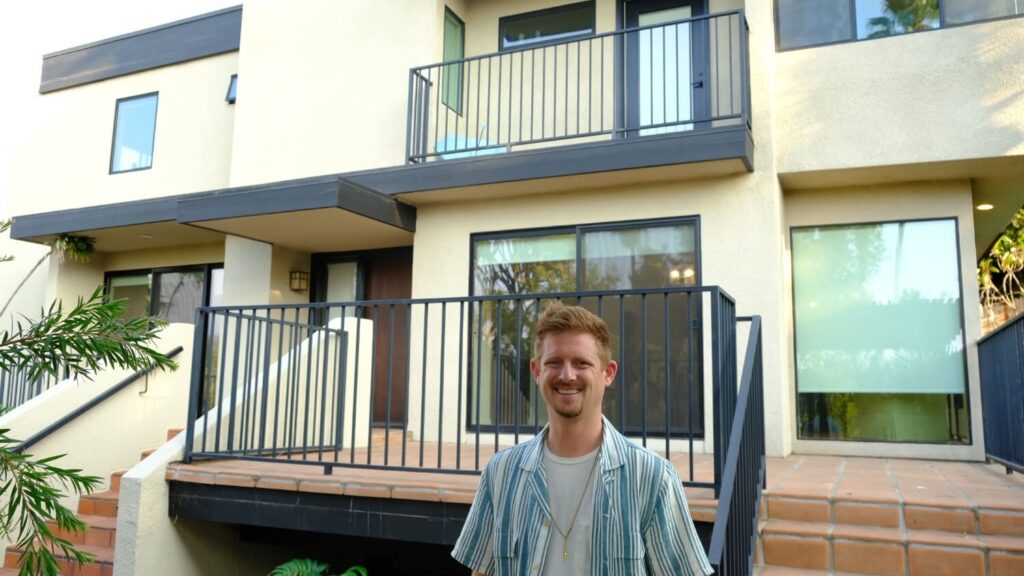
According to Romanov, the veterans’ housing was an influence in coming to Occidental because it is close enough to provide an attachment with the school while still providing a private respite for the two as a married couple.
Barker said he remembers that when Dean Rob Flot started at Occidental College in 2016, he had a meeting with the student veterans to discuss how to improve their experience.
“One of the things that we said was that it would be great to have year-round housing,” Barker said. “You can’t necessarily move back in with your parents on summer break.”
Occidental purchased the Toland Way property in 2017 and conducted renovations, and the housing became available in 2019. While the Toland Way property is a new purchase, the College has a history of providing affordable housing to veterans and their families.
According to Barker, Occidental started a program to train pilots, and at that time, the first set of veterans’ housing was built to incentivize people with families to come train for the program.
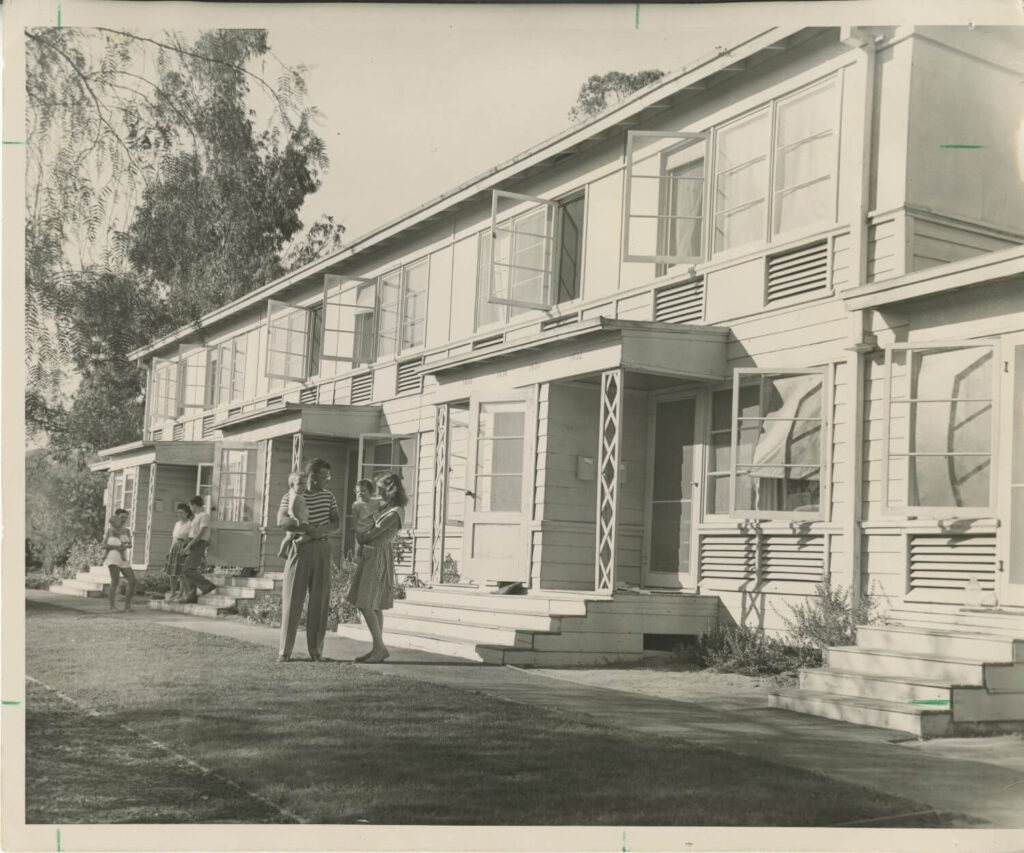
According to Serrano, the housing available at Toland Way was a draw to come to Occidental, and he values having his own room.
“I didn’t want to do dorm life,” Serrano said. “I am also a working professional. I’m a barback, bartender/server at a restaurant, and I also work at a physical therapy clinic right now, which is what I ultimately want to pursue in grad school.”
Serrano said that because his working hours are different from most students, it is helpful to know he doesn’t have to worry about waking up a roommate when he goes home.
Serrano served in the Army for over three years and said he wished he had trained in something technical because when he left, he didn’t have experience to rely on for work. Serrano said that by 2021, his friends had all graduated and they encouraged him to return to school.
“I didn’t know what to pursue as far as school,” Serrano said. “I spent five years just working in different industries and retails.”
Serrano said that he has found the veteran community at Occidental to be incredibly supportive.
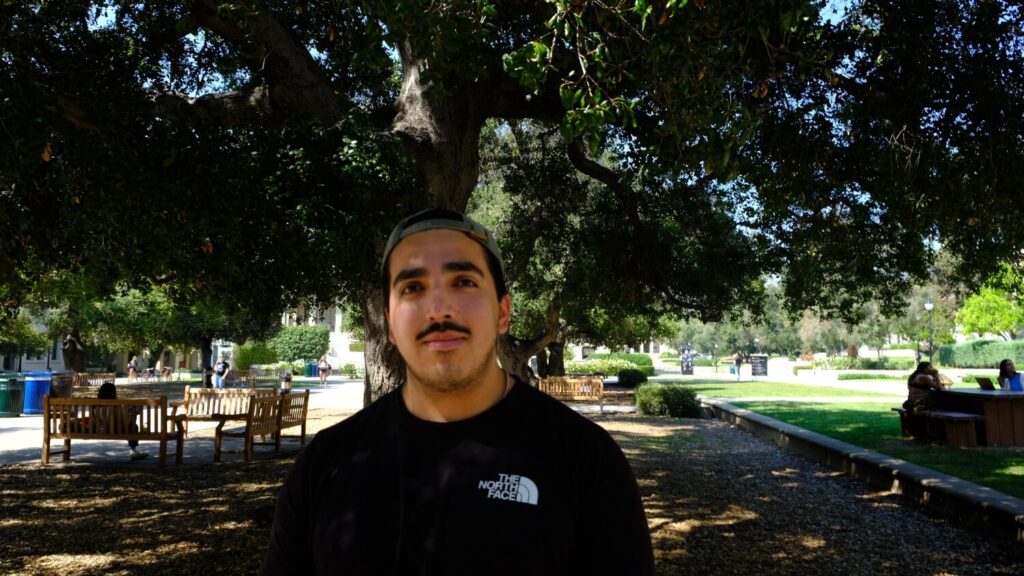
“We just had a dinner last week, and everybody was so welcoming,” Serrano said. “Daryl is really good at connecting these veterans, and so I found that to be reassuring that this is where I belong.”
Barker said that he holds monthly dinners at the house with the student veterans and often brings in people from different areas of campus, such as the Hameetman Career Center, in order to integrate folks into the community.
According to Ann Romanov, Alex Romanov’s wife, the veteran community has made her feel included in everything they have done so far.
“One thing I’m trying really hard to do is to involve more military-connected people across campus,” Barker said. “So not just the student veterans themselves, but also, we have this year 13 people who are using their parents’ GI Bill on campus. We also have faculty or staff who are veterans or military connected as well.”
According to Martinez, veterans looking to enroll in a four-year college often look to schools participating in the Yellow Ribbon Program.
“Through a partnership with the US Dept of Veterans Affairs, Occidental College contributes matching funds on a dollar-for-dollar basis with the VA to fund our veteran students up to 100 percent of their tuition and fee costs,” Martinez said.
Martinez said that the post 9/11 GI Bill is capped at a specific amount annually. This amount varies by the type of college, but once that amount has been utilized, it is typically up to the student to cover their remaining costs with other resources, according to Martinez.
“Since the maximum cap falls short of the full tuition and fee costs at Occidental College, we partner with the VA to make up the difference with Yellow Ribbon funding,” Martinez said.
According to Barker, this is a unique benefit compared to other institutions.
“Most Yellow Ribbon Schools have a cap. So if you go somewhere like USC for instance, they have a hard cap on how much they’ll match above the amount that the GI Bill pays. But we don’t worry about that,” Barker said. “So that’s one of the benefits of coming to Oxy as a student. You’re gonna have your entire tuition and fees paid for [by] the Yellow Ribbon and GI Bill.”
According to Barker, the Ahmanson Foundation provided Occidental College with a grant to assist with this effort in enrolling and supporting veteran students at private colleges.
“The college made a pledge to bring an additional veteran every year to campus, and we get a grant from the foundation every year to pay the difference between cost of attendance and the benefits that vets get from the VA, because the VA funding is based on going to a public school,” Barker said.
Barker said he hopes to strengthen Occidental College’s connection with local community colleges. According to Barker, the majority of the student veterans at Occidental have come through community colleges, entering with some college credit.
“A lot of vets don’t think about private schools at all,” Barker said. “They just think their GI Bill is for a state school.”
According to Barker, every veteran who has graduated from Occidental College has graduated debt-free.
“The cost of attendance is the same whether you’re going to a Cal State or UC, or coming to Oxy from the veteran’s perspective,” Barker said. “And that’s not something you would necessarily know from the outside.”
According to Barker, the life experience between a student veteran and other students is very different, which was exacerbated for him by his age difference; Barker was 28 when he graduated, 10 years older than the incoming first-year students.
“I studied politics, so I had to take a bunch of DWA classes,” Barker said. “People are having conversations about international affairs and policy, and people are talking about things in abstractions. For me, what I was thinking about in those conversations is like, ‘Who are you talking about?’ There’s people who have to actually go out and do the things that you’re saying.”
Romanov said that he thinks being older has benefited him, as he approaches classes and networking from a different frame of mind than the younger students.
“I feel like I use the resources at the school a lot more, especially when it comes to the professors,” Romanov said. “I’m constantly reaching out to them and going to their office hours. I don’t really miss school. I’m always here, which I noticed from a little bit of the younger people — they tend to just be young and go do stuff.”
Romanov said that if anything could be improved for the veterans’ experience at Occidental, it would be to strengthen the college’s understanding of the utilization of veterans benefits.
“I definitely don’t see anything like being treated differently as a veteran student,” Romanov said. “I think it is interesting to be able to have the opportunity to have a completely external experience for me. I feel like it’s nice being able to learn from people who come from a different walk of life.”
According to Romanov, most of his friends are tied to his life before the College.
“I have started to build connections with some of my peers and it has been great—everyone I interact with on campus seem to always be very friendly,” Romanov said.
Barker said that he often thinks about how to integrate the veterans into the rest of the Occidental community in a more seamless way.
“People engage their veteran identities in different ways,” Barker said. “Some people are more or less comfortable talking about it, and sometimes it’s not relevant. Sometimes we’re just students. People have ideas about what a veteran looks like. We have pretty wide ranging experiences. Veterans come in all stripes.”
*Alex Romanov works as a senior editor for The Occidental.
Contact Ava Lalonde at lalonde@oxy.edu
![]()































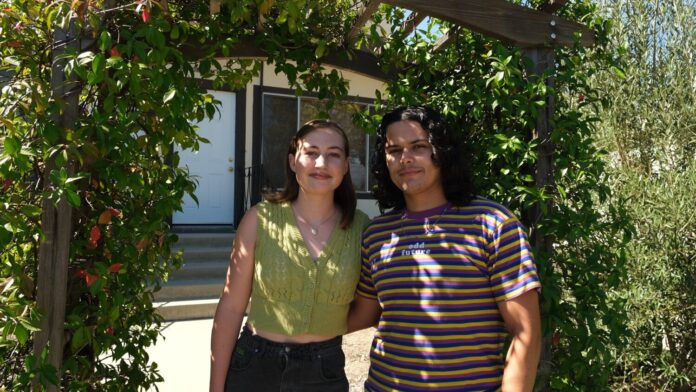
Interesting to see this article gloss over the previously reported on displacement of long-term residents from this same property (the latest in a pattern of Oxy contributing to gentrification in Eagle Rock) in order to provide the veterans housing: https://theoccidentalnews.com/news/2018/03/20/occidental-purchases-properties-veteran-housing-tenants-displaced/2892113